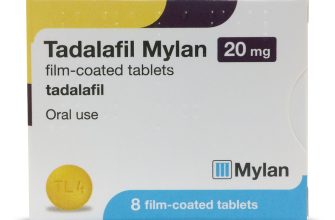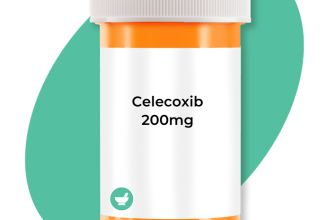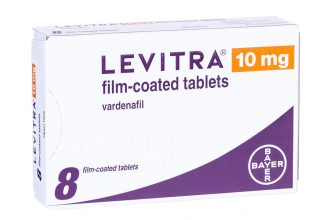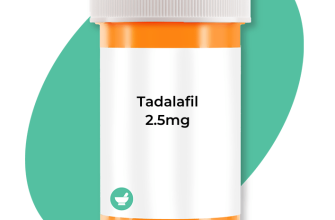If you’re searching for the generic name of Synthroid, look no further than levothyroxine. This medication plays a critical role in treating hypothyroidism, a condition where the thyroid gland doesn’t produce enough hormones. Understanding the generic name not only helps in clear communication with healthcare providers but also aids in making informed decisions regarding treatment options.
Levothyroxine is available under various brand names, making it a widely recognized and recommended solution. As a synthetic form of the thyroid hormone thyroxine (T4), it effectively restores hormonal balance in the body. Patients often find that switching to a generic formulation can be more economical without sacrificing the quality of care. Always consult with your doctor to determine the best choice tailored to your health needs.
When considering levothyroxine, take note of its dosage and administration guidelines. It’s typically taken on an empty stomach, allowing for optimal absorption. Regular monitoring of thyroid hormone levels is crucial for adjusting the dosage accurately as your body responds to treatment. Keeping an open line of communication with your healthcare provider will ensure that your therapy remains effective and safe.
- Synthroid Generic Name
- Understanding the Generic Name for Synthroid
- Key Points about Levothyroxine
- Considerations for Using Levothyroxine
- How Levothyroxine Relates to Synthroid
- Benefits of Using the Generic Form of Synthroid
- Consistency in Dosage
- Availability and Access
- Key Differences Between Synthroid and Its Generic Version
- Formulation Variances
- Cost and Availability
- Dosage and Administration of Levothyroxine
- Administration Tips
- Monitoring and Adjustment
- Common Side Effects Associated with Levothyroxine
- Factors Influencing the Choice Between Synthroid and Generic
- Pharmacy Considerations for Purchasing Levothyroxine
- Choosing the Right Pharmacy
- Understanding Medication Formulations
- Consulting Healthcare Providers About Synthroid Alternatives
- Types of Alternatives to Discuss
- Key Questions to Ask
Synthroid Generic Name
The generic name for Synthroid is levothyroxine sodium. This medication is a synthetic form of the thyroid hormone thyroxine (T4) and is used primarily for the treatment of hypothyroidism.
Levothyroxine sodium works by restoring adequate hormone levels, which helps regulate various physiological processes in the body, including metabolism, energy production, and growth. Patients taking this medication should have their thyroid hormone levels monitored regularly to ensure proper dosing and effectiveness.
Available in various strengths, levothyroxine can be tailored to meet individual needs. Doctors typically start with a low dose, adjusting as necessary based on blood test results. It’s crucial to take levothyroxine at the same time each day, preferably on an empty stomach, to enhance absorption.
Generic levothyroxine products may vary slightly in their formulation compared to Synthroid. It’s advisable to remain consistent with either the brand name or generic version unless directed otherwise by a healthcare provider. This helps avoid potential fluctuations in hormone levels that can occur with different formulations.
Always consult a healthcare professional before making any changes to your medication regimen. This ensures the best possible management of your thyroid condition.
Understanding the Generic Name for Synthroid
The generic name for Synthroid is levothyroxine. This medication is commonly prescribed to treat hypothyroidism, a condition where the thyroid gland does not produce enough thyroid hormones. Levothyroxine works by supplying the body with the necessary hormones to maintain normal metabolic processes.
Key Points about Levothyroxine
Levothyroxine is available in various strengths, allowing healthcare providers to tailor dosages according to individual needs. Patients should adhere to the prescribed dosage and schedule for optimal results. Regular monitoring of TSH and thyroid hormone levels ensures that the treatment is effective and helps prevent potential complications.
| Strength (mcg) | Common Uses | Dosage Recommendations |
|---|---|---|
| 25 | Hypothyroidism in adults | Start with 12.5-25 mcg daily |
| 50 | Hypothyroidism with heart disease | Start with 25 mcg, then adjust |
| 75 | Post-thyroidectomy | Varies based on individual needs |
| 100 | Management of goiter | Adjust according to TSH levels |
Considerations for Using Levothyroxine
Take levothyroxine on an empty stomach, preferably 30-60 minutes before breakfast, for better absorption. Avoid consuming calcium or iron supplements within four hours of taking the medication, as they can interfere with its effectiveness. Inform your doctor about all medications you are currently taking to prevent potential interactions.
How Levothyroxine Relates to Synthroid
Levothyroxine is the generic name for Synthroid, a medication commonly prescribed to treat hypothyroidism. This relationship is straightforward; both contain the same active ingredient, levothyroxine sodium, which helps restore normal thyroid hormone levels in the body.
When comparing Synthroid and its generic counterpart, it’s crucial to recognize that while they share the same active ingredient, differences may exist in inactive components. These variations can affect the pill’s absorption, especially in individuals with specific dietary restrictions or allergies. Consequently, some patients may respond differently to the generic form.
| Property | Synthroid | Levothyroxine (Generic) |
|---|---|---|
| Active Ingredient | Levothyroxine Sodium | Levothyroxine Sodium |
| Inactive Ingredients | Variable (depending on manufacturer) | Variable (depending on manufacturer) |
| Brand Recognition | High | Lower |
| Cost | Higher | Generally Lower |
Patients should always consult their healthcare provider before switching between Synthroid and generic levothyroxine. Monitoring thyroid hormone levels regularly ensures that the chosen medication maintains proper effectiveness in managing hypothyroidism symptoms.
In summary, levothyroxine and Synthroid function identically in treating thyroid hormone deficiencies, but individual responses may vary based on their formulation’s composition. Always approach medication changes with careful consideration and professional guidance.
Benefits of Using the Generic Form of Synthroid
The generic form of Synthroid offers several advantages for patients managing hypothyroidism. First, the cost savings can be significant. Generic drugs are typically priced lower than brand-name versions, making them more accessible for long-term treatment plans.
Consistency in Dosage
Many patients find that the generic versions maintain a consistent dosage strength. This reliability ensures that your thyroid hormone levels remain stable, leading to better management of hypothyroid symptoms.
Availability and Access
Generic Synthroid is widely available at most pharmacies, enhancing convenience for patients. This accessibility prevents delays in treatment and allows for easier refills, ensuring you stay on track with your medication schedule.
Overall, switching to the generic form can provide substantial financial and logistical benefits while maintaining effective thyroid hormone management. Always consult with your healthcare provider before making any changes to your medication regimen.
Key Differences Between Synthroid and Its Generic Version
The primary distinction between Synthroid and its generic counterparts lies in the formulation and bioavailability. Synthroid is a brand name for levothyroxine, which is specifically manufactured with precise quality control and consistency. Generic versions, while containing the same active ingredient, may differ slightly in their inactive ingredients, leading to variations in absorption rates.
Formulation Variances
- Active Ingredients: Both Synthroid and its generics contain levothyroxine, but the source and excipients can differ.
- Inactive Ingredients: Fillers, binders, and coloring agents may change how the body processes the medication. These differences can affect patients with allergies or sensitivities.
- Manufacturing Standards: Synthroid adheres to stringent standards set by the FDA, ensuring uniformity in potency and release characteristics.
Cost and Availability
- Pricing: Generics generally cost less than Synthroid, making them a more affordable option for long-term treatment.
- Accessibility: Generic versions may be available at various pharmacies, enhancing convenience for those seeking treatment.
- Insurance Coverage: Some insurance plans may favor generics, reducing out-of-pocket expenses for patients.
Consult your healthcare provider before switching between Synthroid and its generic forms. Monitoring thyroid levels after a switch can ensure that your treatment remains effective and safe.
Dosage and Administration of Levothyroxine
For most adults, the typical starting dose of levothyroxine is 1.6 mcg/kg of body weight per day. Adjust the dose based on individual response and laboratory tests. Monitor thyroid-stimulating hormone (TSH) levels about 6 to 8 weeks after starting or adjusting the dose.
Children require different dosages based on age and weight. Infants usually start at 10 to 15 mcg per day. Increase the dose gradually, keeping a close eye on TSH levels to avoid under or overwriting.
Administration Tips
Administer levothyroxine on an empty stomach, ideally 30 to 60 minutes before breakfast. Consistency is key, so take it at the same time each day. Avoid taking it with supplements or medications that contain calcium, iron, or magnesium, as they can interfere with absorption.
Monitoring and Adjustment
Regularly check TSH levels to ensure the dose remains appropriate. Dosage adjustments may be necessary based on changes in weight, age, or overall health. Communicate with your healthcare provider if you experience symptoms of hypo- or hyperthyroidism.
Common Side Effects Associated with Levothyroxine
Patients taking Levothyroxine may experience side effects, particularly when adjusting dosage. Watch for symptoms like increased heart rate, anxiety, or tremors. If you notice these, inform your doctor for possible dosage adjustments.
Some individuals report insomnia or difficulty sleeping. Establishing a regular bedtime routine can help mitigate these disruptions. If sleep issues persist, discuss alternative solutions with your healthcare provider.
Weight changes are another potential side effect. While some may experience weight loss, others might gain weight. Maintaining a balanced diet and consistent exercise can help manage these fluctuations. Consult a dietitian if significant changes occur.
Digestive issues, including diarrhea or constipation, can arise. Increasing fiber intake and staying hydrated may aid in alleviating these symptoms. If gastrointestinal problems become severe, seek medical advice.
Allergic reactions, although rare, can manifest. Symptoms such as rash, itching, or swelling warrant immediate medical attention. Your doctor may consider alternative medications if an allergy is confirmed.
Monitor blood pressure regularly as Levothyroxine can cause elevations. Keeping track of readings at home can provide essential information for your doctor. Adjustments to medication may be necessary if hypertension develops.
Fatigue can occur, especially during the initial treatment phases. Ensuring adequate rest and managing stress levels can alleviate feelings of tiredness. If fatigue continues, schedule a follow-up appointment.
Always communicate any side effects to your healthcare provider to ensure safe and effective treatment with Levothyroxine. Regular check-ins will help tailor your therapy to your needs.
Factors Influencing the Choice Between Synthroid and Generic
Consult your healthcare provider first when determining whether to choose Synthroid or a generic alternative. These options can vary based on individual health needs and specific brand formulations.
Bioequivalence is a key factor. Generics must demonstrate similar bioavailability and therapeutic effect as Synthroid. Although many patients respond well to generics, you may find that Synthroid works better for you due to slight differences in absorption.
Cost often plays a significant role. Generic medications generally come at a lower price. However, insurance coverage can influence your out-of-pocket expenses. Check your plan to see which option offers better financial relief.
Consistency in formulation is another consideration. Some patients may notice variations in how they feel when switching between different brands or between brand-name and generic versions. Monitor your symptoms closely and communicate any changes to your doctor.
Medication interactions should not be overlooked. Discuss all your medications with a healthcare provider to ensure that either option doesn’t interfere with your other treatments or conditions.
Personal preference may also guide your decision. Some individuals prefer the reliability of a brand name, while others are comfortable using generics. Your comfort level matters; it can impact adherence to the treatment plan.
In conclusion, weigh these factors carefully. Make your decision in tandem with your healthcare provider, ensuring that you select the most suitable option for your health needs.
Pharmacy Considerations for Purchasing Levothyroxine
Ensure you obtain a prescription from a healthcare provider specifically for Levothyroxine, as it is necessary for its proper use. Check if your pharmacy accepts your insurance plan to minimize out-of-pocket costs.
Choosing the Right Pharmacy
Compare local pharmacies for price variations. Consider using pharmacy discount cards or programs that some stores offer. If your local pharmacy does not carry Levothyroxine, ask about options for ordering it.
- Investigate online pharmacies for potential savings, but verify their legitimacy. Look for certification such as VIPPS (Verified Internet Pharmacy Practice Sites).
- Consider chain pharmacies that may offer loyalty programs or rewards for regular purchases.
- Inquire about generic options, as they often provide similar efficacy at lower prices.
Understanding Medication Formulations
Different brands and generic formulations of Levothyroxine may have varying bioavailability, affecting absorption. Stick with one formulation once you find one that works to maintain consistent hormone levels.
- Review specific dosage forms such as tablets or liquid solutions based on your preference and medical advice.
- Avoid switching between different brands without consulting your healthcare team, as this can lead to fluctuations in thyroid hormone levels.
Finally, always check the expiration date on your Levothyroxine and store it in a cool, dry place. If you experience any side effects or have concerns, reach out to your healthcare provider without delay.
Consulting Healthcare Providers About Synthroid Alternatives
Discuss alternatives to Synthroid directly with your healthcare provider. They can recommend appropriate medications based on your individual health needs and thyroid function. Schedule an appointment to review your current treatment and express any concerns regarding Synthroid’s effectiveness or side effects.
Types of Alternatives to Discuss
- Levothyroxine: The generic version of Synthroid, often recommended for its similar effectiveness.
- Liothyronine: A synthetic form of triiodothyronine (T3) that may be prescribed in certain cases.
- Desiccated Thyroid Extract: A natural option derived from animal thyroid glands, suitable for some individuals.
Key Questions to Ask
- What are the potential benefits and drawbacks of switching to an alternative?
- How will this change affect my dosage and overall management of hypothyroidism?
- Are there specific side effects associated with any alternative treatments?
Stay proactive in your healthcare conversations. Document any symptoms or side effects you experience on Synthroid and share this information. This will assist your provider in making informed decisions about your treatment plan.









